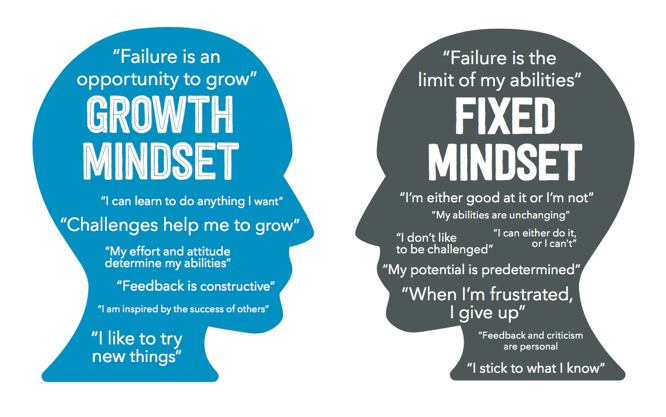
Meural was acquired by NETGEAR 3 years after I started working there, the company’s 4th year in business.
Earlier this month, the company I worked at as Director of Sales for nearly 3 years, Meural, was acquired by NETGEAR. I recently turned 24 and now have over 5 years of real business experience and generated millions in sales for multiple companies which has earned me hundreds of thousands. I was reflecting over the journey and what I’ve learned and had an epiphany. Had I taken the traditional academic route in order to understand entrepreneurship, I would have just finished up my MBA, have no real business experience, likely some college debt and a network limited mostly to my college peers. I’ve also earned more income than the average MBA graduate as a 24 year old dropout for the past 2 years, more than half of which was earned via sales commissions and investments. This doesn’t mean that I’m special though, it’s more so that the process I followed is powerful and I feel a normal young person with an abnormal amount of ambition can model after this process and win.
Before we continue with this post, let’s take a quick look at statistics about MBAs from some credible sources.
- According to Investopedia, the average MBA costs over $140,000. When you include lost potential income that figure climbs to over $260,000. That’s over a quarter of a million loss in a 2 year period, not to mention the 4 spent years and money “invested” for your undergraduate degree.
- According to US News, the average 2017 MBA graduate earns $105,000 per year which is definitely not shabby, but when you consider the steep price of the money and time you have to invest, it doesn’t seem like a great deal compared to the Alternative MBA. The top 20 MBA program graduates don’t make much more than the average either.

You can dress up nice and show off your certificate but your skill will be truly developed and tested in the field…
- In 2013, Business Insider said MBA graduates are straight up delusional about what they expect their salary to be vs what it actually ends up being. That’s essentially as true now as it was then when you consider the inflation of the dollar and the commoditization of these employment certificates.
- In 2016, The Economist said that employers no longer prize the MBA. You can see in the comment section that this upset many people, understandably so because many people have borrowed a lot of money and spent 2 years of non-refundable time getting one and maybe weren’t aware that they don’t NEED an MBA to earn a healthy 6 figure income in business in your early 20s (or younger).
- In 2016, Forbes laid out 10 Reasons You Don’t Need an MBA. Basically a lot of what we will cover in this post.
I was fortunate enough to stumble upon the concept of entrepreneurship right before I turned 19 and that discovery changed my life. At the time I just knew I wanted to have a massive impact on society and thought a political career was the best way to do that but when I discovered the vehicle of entrepreneurship I saw a way I could create teams of people, solve problems and leave my mark on this world without being constricted in the confines a job within a bureaucratic government or big corporation. I made a calculated decision to drop out of college my freshman year even though I had straight A’s and was even making a little money from the scholarships and financial aid. Through some investigation, by talking to many college students and looking at statistics, I determined that it would probably make more sense for me to immerse myself fully into learning entrepreneurship rather than spending the next 4 years in classes where I’d be learning things that wouldn’t change my life or improve my enterprising skills. I made the decision quickly and remember feeling a sense of relief and excitement when I walked out of the Brooklyn College admissions office, I was now on the way to carving my own path to a life with unlimited potential.

The very building I walked into weeks before I turned 19 to officially drop out. Brooklyn College Admissions.
In the beginning, I struggled. Ironically, I had no issue with approaching strangers, being coachable and even making sales. What I struggled with for the first 2 years of my journey, amongst other things, was aligning my desire to be free and have an impact with a business I could get excited about while also learning how to manage my emotions. My lifestyle was more unpredictable and unstable from the constant experimentation I did to regret proof my life vs just walking into some prescribed method of mediocre living. This initial period helped me figure out not only what I want to do with my life but also helped me figure out how and why the goals I set for myself were worth pursuing. I also studied and practiced a lot of business, marketing and sales skills that helped me sell my first $1 Million as a telemarketer and launch my first DIY music album within this period. I learned to enjoy the process from starting as a hard working but broke, depressed and naive 19 year old kid to becoming a toughened, cultured, skilled, focused and high paid 24 year old professional on a mission. I share more with how this impacted me on my 5 Year Entrepreneur Anniversary blog post. Had I taken the path of becoming an Officer in the Marines and a politician, maybe I could convince myself I was really positioned to make a difference but the reality that economics plays a big role in our political system would still be a controlling reality of my life, limiting the growth and scale of impact I could have. I can never know what would have happened had I become a Marine Officer but my guess is I would either be killed in combat or eventually become the President, was my primary goal back then. Mastery of a skillset and your life design can be achieved only by intentionally planning out the big decisions in your life in an optimal way while following that up with the little daily activities and adaptability needed to actually achieve and hold onto your dreams.

The only thing you really need to complete this process is a growth mindset which is defined above. A very small percentage of people choose to adopt this mindset.
The first few years I struggled because I had to go through the process of adopting the mindset, habits and knowledge of the person I desired to become. The way I think, act and feel now is radically different now than it was before this process. At 21, I decided to start living my life by a certain set of principles and values. For example, when it comes to career related questions I ask myself, how much can I learn, how much can I earn, who can I meet and what kind of impact can I have with this opportunity? This ethos has allowed me to live a fuller life with uncapped potential. The years before I adopted it, I struggled because I allowed myself to settle for mediocre jobs and opportunities instead of challenging and rewarding ones. I now have some principles when it comes to education as well, such as seeking only to learn from those who know, understand and have done what you seek to learn and do. This principle is what led me to drop out of college, I quickly realized that our current educational model is obsolete in a world where the average person has more info available at their fingertips than the President of America did 20 years ago. But how you ask? Well, below is a simplified framework of what an alternative MBA looks like.
Alternative MBA Framework (2 Years)
PHASE 1: The Foundation (1st Year)
Learn the fundamentals of business, finance, leadership practice, terminology and theory by reading books, taking online courses and most importantly constantly practicing these theories to turn them into skills and frameworks. A good target is to study at least 100 books/training programs and invest at least 1,000 hours into practicing these skills within the 1st year. 2 hours of reading and 4 hours of practice per weekday (260 weekdays) is enough to conquer both of those targets leaving plenty of room for full time work and experimentation to figure out what field you want to focus on. I surpassed both these figures my first year in the process when I was 19. During that year I earned very little income but built a strong foundation of business knowledge, sales/marketing skills and after ran many experiments on my “runway” which we cover below. Keep in mind the only investment you’re making is 1 year of your time and hundreds or maybe thousands of dollars at the most for books, training programs, coaching etc. $2,500 to $15,000 max is more than enough for all books, training etc. (Hint: Most libraries let you read books for free, that’s what I did when I was a broke 19 year old.) Also, it’s worth mentioning you should ABSOLUTELY continue studying books, programs, training, coaching etc. every year after this first year until you die if you truly want to be great otherwise you will become virtually obsolete in the sometimes cold market. The typical MBA student studies accounting, economics and management amongst other things. You can deeply study these subjects through books, YouTube, Udemy courses, blogs and publicly available research info. One course I’d highly recommend on Udemy that basically condenses an MBA is An Entire MBA in 1 Course by Chris Haroun an award winning business school teacher. It’s much more affordable than an actual MBA…
NOTE: I will make another post soon with more links to all the books and training programs that helped me build a solid foundation to save you time in your process.
PHASE 2: The Runway (2nd Year)
Determine a field of interest (Technology, entertainment, health/fitness etc.) Be sure to base this on a field your interested in and can get passionate about because business is hard for the inept and for the proficient so you will need emotional fuel to help you push through the pain. Having a very strong “why” is a great motivator, a strong “why” will ignite your passion in something if that means your “why” is achieved. The runway is where you put all you’ve learned to the test with a series of business experiments until you either get a business running from scratch or directly help a startup company get to the next level. Having a business mentor or mentors at this stage is extremely helpful and recommended because they can guide you through the process. For example if you work at a startup with an experienced CEO you can learn from them while also helping them build the company with your newly acquired knowledge and skills from Phase 1. I had numerous successful business mentors throughout my journey that have helped me greatly. Make sure you are selective of who you choose as a mentor and make sure they have proven success. This stage gives you real tangible experience and reference points to not just learn but also figure out what kind of business you actually want to build while being able to validate your idea in the real marketplace alongside proven mentors. If you’re wondering how to find a mentor, here is a simple tip, find someone who has a career you’d like to model after and find a way to learn from them.
PHASE 3: Graduation (Ideally End of 2nd Year)
Ah, graduation, the day you’ve worked so hard for without having to spend an insane amount of money and while packing your life with unique experiences that will give you an edge over your peers who opted for the allure of academic institutions. What is graduation? It’s when you’ve either earned your first $100,000+ in free enterprise, successfully started a sustainable healthy business or even sold your first company for a profit. Congratulations kiddo, you earned some real fucking experience even though you don’t have a piece of paper certifying the value of your process and execution it doesn’t matter because you now have completed the Alternative MBA and are better prepared than your academic counterparts who played it safe. I used this process and graduated. I am not a genius, barely passed math and had a more or less average childhood with less than average access to resources that would set me up for success but I “graduated”. I want you to know that although it took a little more than 2 years for me to graduate, that if I can do this, you can definitely do it too.
I hope I can be an example to young aspiring entrepreneurs to help them navigate their own journey and evolution by learning from my failures and successes. Not only is it possible to learn business without an MBA or degree but it’s even possible to change the world without one. Don’t invest 4 to 6+ years of your life and potentially hundreds of thousands on a system that will leave you with little skill, commoditized knowledge and lost time that could have been invested into learning tangible skills unless you are certain that attaining a degree is the most effective way for you to achieve your core goals. For example, if you want to be an executive employee, then getting an MBA can make sense but if you want to build and own the company vs just being a hired executive or CEO, real business experience and constant self education usually creates preferable results. That experience can be attained by founding companies or joining and building early stage startups, an MBA seems to be more suited for those who are seeking business management jobs in the C-Suite or as a high level executive. The salaries can be great, definitely better than an average job, however nothing compared to the income that’s possible through sales or as a business owner.

This can be you driving in front of all the haters who told you that you need an MBA to build a successful business, maybe 7 or more years into the process if you work hard and smart enough 🙂
Now, I want to be absolutely clear, I’m not some angry drop out hating on MBA grads. In fact, I believe that many of them are very sharp, ambitious and bright individuals. What I’m mad at is the system that sold them the idea that they have to spend years in the walls of an institution for a hefty price to be taught how to be an entrepreneur by mostly people who’ve never even had a company exit, let alone started a successful one. Also, of course MBA grads will earn more than the average American but to earn more as an entrepreneur you do not need to acquire an MBA. I truly believe average people who are hungry can use this route and start to win in the sport of business as well. So, now that you are aware that the Alternative MBA exists you can use it for yourself even if you already have an actual MBA because it sure won’t hurt to reap the rewards of the alternative graduation! I hope this post has informed and inspired you to pursue greatness in business and most importantly let your peers know that there is another way to become proficient at business leadership after or even before high school, it’s called the Alternative MBA.
QUESTION OF THE WEEK: Are you pursuing or even already have an MBA? Why and do you still feel it’s worth it after reading this?
Thank you for reading this post, I would love to hear your questions, comments and thoughts! Feel free to comment them below 🙂
